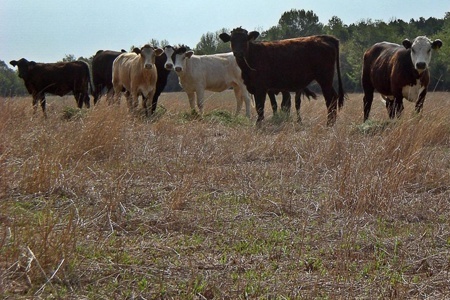
Zimbabwe’s national herd is under threat from the El Niño induced drought amid reports that more than 5 000 cattle have died in Masvingo province alone — as of December last year — due to lack of pastures and water.
Tatenda Chitagu The drought has hit villagers in Chivi, Mwenezi and Chiredzi so much that they are now selling their cattle for as little as $40 a beast.

The national herd was estimated at 5,3 million last year, down from around six million in 1996 before the country’s controversial land reform programme that saw the violent takeover of mainly white commercial farms by Zanu PF-linked people.
Masvingo provincial veterinary officer, Ernest Dzimwasha said 5 000 beasts had died since October last year.
“Farmers from across the province started losing their cattle as of October last year, but they were isolated cases. As of December, 5 000 cases of cattle deaths had been reported due to lack of pastures and water,” Dzimwasha said.
“We do not have the January figures as yet, but we are receiving reports that the situation is now worse as the cattle are dying en-masse.”
He added that the figure could be higher as some cases went unreported.
- Chamisa under fire over US$120K donation
- Mavhunga puts DeMbare into Chibuku quarterfinals
- Pension funds bet on Cabora Bassa oilfields
- Councils defy govt fire tender directive
Keep Reading
“The situation could be worse than the official reports we are getting because some cases go unreported, while other villagers resort to slaughtering their cattle upon realising that they are about to die,” Dzimwasha said.
Masvingo, according to Dzimwasha, has one million cattle. He said all districts in the province had been affected, adding that destocking, as well as buying supplementary feeds, was the only option.
“Cattle are walking distances of 15 to 20km in search of water, yet they will be hungry and as a result, they die,” he said.
“So we are urging farmers to destock while their beasts are still in good shape and get something meaningful from their livestock, instead of waiting to reach the point where they cannot sell,” he said.
“Farmers can also buy supplementary feeds which have since been distributed in two districts, but are needed in every district.”
Beef exports, mostly to the European Union, used to earn Zimbabwe over $40 million a year, but the figures have since dropped sharply due to sanctions as well as the recurrent foot-and-mouth disease outbreaks.











